The relationship between chemotherapy agents and infertility
After a cancer diagnosis, it’s important to arm yourself with information about the impact of the disease and its treatment on your health and your future. For many women and men that means learning about the relationship between chemotherapy agents and infertility. Our oncofertility specialist in LA can help you understand the effects that your cancer treatment could have on your ability to have a biological child, and can explain your fertility preservation options.
Understanding chemotherapy agents and infertility
Our oncofertility specialist in LA encourages both men and women to explore fertility preservation before starting any chemotherapy treatment, as these fertility treatments should be completed before your first dose of chemotherapy.
For men, sperm freezing is an effective and affordable way to protect future fertility from damage caused by chemotherapy. For women, our physicians suggest egg or embryo freezing.
Women are born with a lifetime supply of eggs, and chemotherapy agents can damage the immature eggs that you’re already carrying. This can compromise your ovarian reserve, or supply of fertile eggs, placing you at risk for early menopause.
Three main factors determine the extent of female infertility after chemotherapy.
- Your age
- Which chemotherapy drugs are prescribed
- Whether you receive high-dose or low-dose chemo
The closer you are to menopause, which typically occurs in a woman’s early 50s, the more likely you are to experience permanent menopause after chemotherapy. Generally speaking, women in their 40s are at higher risk of entering menopause early with chemo.
If you’re in your 20s or younger, you have much better odds of becoming pregnant after chemotherapy. However, because other factors come into play in determining the impact of chemotherapy agents and infertility, even young women would be wise to freeze eggs or embryos before chemotherapy treatment begins.
In some women, chemo-associated menopause is temporary, and menstrual cycles return to normal within a few months or years. All women who have undergone cancer treatment should see a fertility specialist for testing because the return of your periods doesn’t necessarily mean that you have the same ovarian reserve you had before your cancer treatment.
Most chemotherapy drugs carry at least some risk of damaging your eggs. According to the American Cancer Society, certain chemotherapy agents and infertility risk are more closely linked, carrying a higher risk of egg damage.
- Busulfan
- Carboplatin
- Carmustine
- Chlorambucil
- Cisplatin
- Cytoxan® (Cyclophosphamide)
- Dacarbazine
- Adriamycin® (Doxorubicin)
- Ifosfamide
- Lomustine
- Mechlorethamine
- Melphalan
- Procarbazine
- Temozolomide
Other chemo drugs, including methotrexate, fluorouracil and vincristine, are not as strongly associated with infertility. For some newer chemotherapies, such as taxanes, the effect on fertility is not yet known.
High doses of chemotherapy may be more likely to damage your fertility than lower doses. The relationship between chemotherapy agents and infertility can be highly unpredictable because different chemotherapy drugs may be combined in your treatment regimen.
Preserve your fertility before cancer treatment
Our Los Angeles oncofertility center provides egg freezing and embryo freezing for women facing cancer treatment, allowing them to preserve their future fertility so they can try for a baby after recovery. We can also coordinate sperm freezing for men who wish to become fathers after cancer treatment. Because these fertility treatments should take place before chemotherapy begins, these priority patients receive “fast-track” scheduling and coordination of care with their oncology team.
For information about chemotherapy agents and infertility, contact us to schedule a consultation with an oncofertility specialist in LA.

